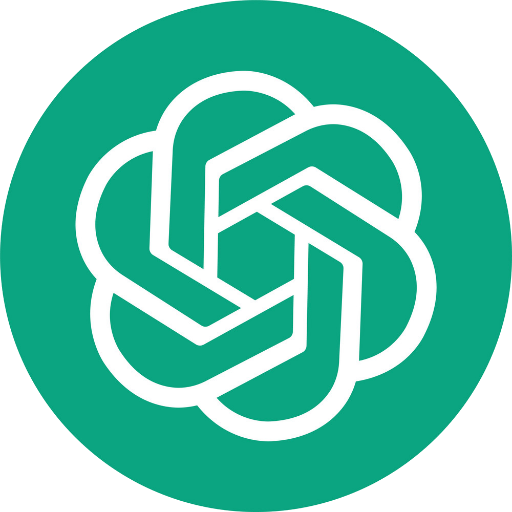JournalGPT-AI journaling tool that helps users track experiences, reflect, and gain insights into their lives.
AI-powered journaling for self-reflection and growth.
Just speak about how your day is going!
Upload your existing memory file, if you have it!
Special commands: reflect, topfacts, profile
We are continuosly improving!
Related Tools
Load More
GPT 4
Your Chat GPT 4 assistant, here to provide expert help and engaging conversations.

Newsletter GPT
Writes perfect newsletter content everytime. Start by providing some news article text.

ArticleGPT
Create Hallucination-Free, Fact-Based, and SEO-Friendly Articles Using Our AI Article Writer - ArticleGPT.

JournalismGPT - AI Assistent Of A Journalist
Creates Social Media Posts. SEO, Interviews, Follow-Up Stories, and More from a Journalistic Article. Supported Languages - English, German, Spanish, Italian, French, Polish.

JournalGPT
Daily Journal Analysis

Research GPT
Your go-to source for well-researched information!
20.0 / 5 (200 votes)
Introduction to JournalGPT
JournalGPT is an AI-powered tool designed to assist users in creating, maintaining, and reflecting on a personal journal. Its primary function is to help users capture moments, ideas, achievements, and reflections in a structured way, transforming daily experiences into meaningful entries. By using natural language understanding, JournalGPT extracts facts, events, emotions, and observations from user input and stores them in a structured format. This format is designed to help users reflect on their experiences, recognize patterns in their behavior, and gain insights over time. JournalGPT can be particularly useful for those who want to keep a personal diary, monitor their progress towards personal goals, or simply reflect on their day-to-day experiences.

Main Functions of JournalGPT
Fact Extraction
Example
If a user shares, 'Today I completed a 5K run and felt really accomplished,' JournalGPT identifies key details like the activity (5K run), the associated emotion (felt accomplished), and the time ('Today').
Scenario
Ideal for capturing daily activities and emotions. A user could input their day’s activities, and JournalGPT would extract and store each fact to create a timeline of events.
Reflection and Summarization
Example
If a user asks for a reflection, JournalGPT reviews all stored facts and provides a summary of the most significant events, like achievements or challenges, offering insights on personal growth and progress.
Scenario
Useful for users who want to understand patterns in their behavior or emotions. For instance, a user could request a reflection for the past month to understand their emotional trends and identify areas for improvement.
Profile Analysis
Example
By analyzing entries over time, JournalGPT can detect recurring themes (like consistent mentions of stress at work) and suggest coping strategies or changes based on the user's recorded experiences.
Scenario
Helpful for personal development. A user might use this function to understand underlying issues affecting their mental health, such as recognizing burnout, and to receive suggestions for addressing it.
Ideal Users of JournalGPT
Individuals Seeking Personal Growth
These users aim to achieve personal development by reflecting on their experiences, recognizing patterns, and setting goals. JournalGPT provides them with a structured way to document their journey, analyze their thoughts and behaviors, and track progress over time.
Mental Health and Wellness Enthusiasts
This group includes people who are mindful of their mental health or are undergoing therapy. JournalGPT offers them a private, safe space to document thoughts, emotions, and experiences, and provides insights that could support their mental well-being, like identifying triggers for stress or moments of joy.

How to Use JournalGPT
Visit aichatonline.org
Start your free trial without needing to log in or subscribe to ChatGPT Plus. Access JournalGPT directly for a hands-on experience.
Prepare Your Memory File
If you have an existing journal file, upload it to JournalGPT to continue recording your thoughts. If not, JournalGPT will help you start fresh.
Engage in Conversation
Share your experiences, thoughts, or reflections. JournalGPT will extract key facts and organize them into a structured memory file.
Review and Reflect
Use commands like 'reflect' or 'topfacts' to generate summaries, insights, and reflections based on your journal entries.
Download Your Memory File
After journaling, download your updated memory file to keep a personal record. You can continue to build on it in future sessions.
Try other advanced and practical GPTs
Wildstyle
AI-powered graffiti art creation

常に嘘を答えるBot
Your AI for playful and false answers.

SaaS Developer
AI-powered SaaS development made easy.

Pepe Generator
AI-Powered Pepe Meme Creation Tool

Remote Job Finder
AI-powered remote job search

Artful Print & Paint
AI-powered creativity for coloring fun

Cartoon Creator
Transform your photos into stunning 3D cartoons with AI.

The Digital Marketing Canvas (DMC)
AI-Powered Digital Marketing Strategy Tool

Gridiron Forecaster
AI-driven accuracy for NFL predictions

Mac Productivity Guru
AI-powered productivity for Mac users

Lesson Planner
AI-powered lesson plans for teachers.

Children's Story Book Generator
Create personalized children's stories with AI

- Project Management
- Self-Reflection
- Goal Tracking
- Daily Journaling
- Mental Wellbeing
JournalGPT Q&A
What is JournalGPT?
JournalGPT is an AI-powered journaling assistant that helps you organize and reflect on your daily experiences. It extracts key facts, creates summaries, and offers insights based on your entries.
How does JournalGPT store my entries?
JournalGPT organizes your entries into a structured memory file, including time, location, involved entities, and tags. This file is stored locally and can be downloaded after each session.
Can I use JournalGPT for different types of journaling?
Yes, JournalGPT can be used for personal reflections, goal tracking, project management, and more. It's flexible and adapts to your journaling needs.
How does JournalGPT help me reflect on my entries?
JournalGPT offers commands like 'reflect' and 'topfacts' that analyze your entries to generate summaries, highlight key moments, and provide insights for deeper reflection.
Is my data safe with JournalGPT?
Yes, JournalGPT stores your data locally in a memory file that you control. The file is deleted after a few minutes of inactivity, ensuring your privacy.